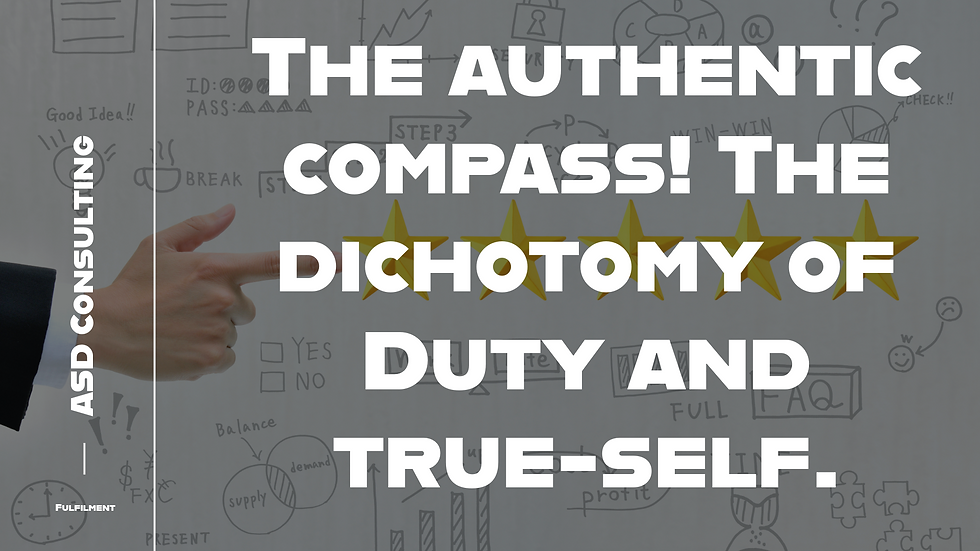The Unburdened Mind: How Desire Steals Our Default Happiness.
- David Tyler

- Jun 12
- 4 min read

As you will see from previous blog posts I’ve long contemplated the elusive nature of happiness. Is it a goal to be achieved, a fleeting sensation, or something more fundamental? Recently, I’ve been engrossed in the profound insights of Dr. Alok Kanojia, particularly his perspectives on the mind's intrinsic state. His work resonates deeply with ancient wisdom, offering a compelling narrative that challenges our conventional understanding of well-being. What if, as Dr. Kanojia suggests, happiness isn't something we strive for, but rather our inherent default state, perpetually disrupted by the clamour of desire? The Unburdened Mind: How Desire Steals Our Default Happiness.
Consider a moment of true contentment. Perhaps after a satisfying meal, or a quiet stroll through nature. In those moments, there's often a stillness, a lack of striving. Dr. Kanojia beautifully articulates this as "a lack of desire." It's when the mind is free from the constant pull of "I want" that we experience a profound sense of peace. This isn't a passive state of inaction, but an active absence of mental turbulence.
The moment desire enters the equation, this innate happiness begins to dissipate. Imagine you're feeling perfectly content, and then you see someone enjoying a delicious cookie. Suddenly, a desire arises: "I want that cookie." As Dr. Kanojia highlights, this isn't just a fleeting thought; it's mental activity, a ripple in the calm surface of our being. The mind grasps, contemplates, and strategises. If the desire is unfulfilled, unhappiness follows. The person on the train wanting a cappuccino, the individual yearning for a video game they don't own—their current state of peace is fractured by the emergence of a want.
This isn't to say that all desires are inherently "bad." As Dr. Kanojia points out, 100% of human beings, and indeed most animals, chase their desires because the satisfaction of those desires does bring a temporary sense of contentment. We're thirsty, we drink, and the thirst—the desire—goes away. We feel good. The problem, however, lies in misunderstanding this mechanism. We mistakenly believe that the fulfilment of the desire brings happiness, when in reality, it's the removal of the desire that restores us to our default state of balance.
This subtle but crucial distinction has profound implications, especially in our technologically saturated world. The advertising industry, as Dr. Kanojia notes, capitalises on this misunderstanding, bombarding us with images of things we "don't have," creating an endless cycle of wanting. Social media, with its curated perfection, fuels body dysmorphia and a constant sense of inadequacy. We are taught that happiness is external, attainable only through acquisition or comparison. But this is a mirage. The more we indulge in this pursuit, the more our "unfulfilled desires are going up," leading to a global increase in unhappiness.
The temporary relief that comes from satisfying a desire is deceptive. As Dr. Kanojia eloquently puts it, "No amount of indulging our desires will ever bring us lasting happiness because... whatever we do to make us happy has diminishing returns." The initial rush of a new purchase, a new experience, or even a video game, inevitably fades. Our brains develop a tolerance, and we're left needing more and more to achieve the same fleeting satisfaction. We are, in essence, training our neural pathways to believe that the only path to happiness is through constant acquisition and fulfilment.
This cyclical pattern of desire and momentary satisfaction is a far cry from true inner peace. Inner peace, Dr. Kanojia suggests, is stillness, a "lack of activity" in the mind. When we are truly absorbed in something, like binge-watching a show, or deeply connecting with a loved one, we lose track of time. This "one-pointedness of the mind" is blissful precisely because "there's not a longing for anything else."
Even emotions, often perceived as disruptive, don't inherently destroy our happiness. Consider the experience of watching a sad movie. We might cry, feel heartbreak, and yet paradoxically, "love it." Why? Because in that moment of absorption, there's no desire attached to the sadness. We're not wishing the sadness away or wanting something different. It's when we associate emotions with desire—"I'm sad because I don't have a partner"—that the emotion becomes painful. The desire to change the emotional state, or to possess something that would alleviate it, is what creates suffering.
The pathway to reclaiming our default happiness lies in recognising this fundamental truth. As we cultivate practices that foster inner contentment—meditation, mindfulness, or simply moments of quiet stillness—we begin to perceive that our "base default state is happiness." In this space, even negative emotions lose their power to disrupt our peace. We can experience the full spectrum of life's emotions without being swept away by desire-driven reactivity.
Ultimately, the problem with much of our modern existence, amplified by technology, is that it propels us towards "more desire, more desire, more activity of the mind." Boredom, that often-dreaded state, is actually our brain attempting to calm itself down, seeking that very stillness we instinctively crave. By understanding that happiness is not a destination to be reached through constant striving, but rather our inherent state of being, we can begin to disentangle ourselves from the endless pursuit of desire and rediscover the profound peace that lies within.



Comments